Female Students Subjected To Physical Inspections During Exams
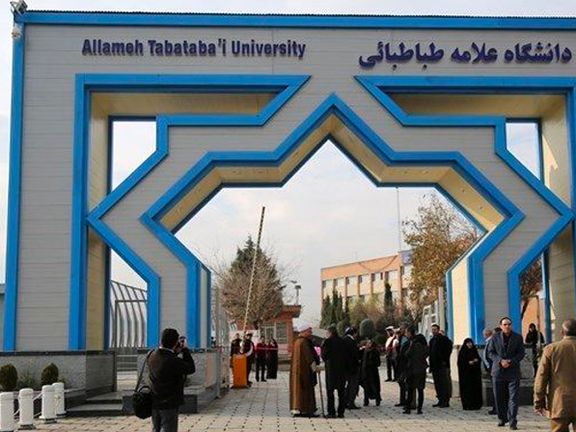
Security forces have disrupted end-of-semester exams, invasively searching students and threatening women who did not wear headscarves strictly in Tehran.

Security forces have disrupted end-of-semester exams, invasively searching students and threatening women who did not wear headscarves strictly in Tehran.
The Student Union Council of Iran said on its Telegram channel that the university's security officers "repeatedly disrupted order" by taking photos of students and enforcing strict hijab rules.
A warning was also issued saying that their answer sheets would be withheld if they failed to comply, the report added.
Metal detectors were used by security forces to search both male and female students and those with metallic objects, including belts, were not allowed to enter exam rooms.
In recent months, security and intelligence organisations have increased pressure on students for hijab amidst a nationwide hijab rebellion in universities across the country, leading to the suspension of possibly hundreds of students.
Last week, students across the country and various social and political groups expressed solidarity with the students at University of Art in Tehran who have been staging protests against stricter hijab.
University of Art students have been protesting new rules that require women to wear a pullover headscarf with stitched front (called Maghna’e in Iran) which is like a nun’s coif, completely covering the head and the neck. Failing to comply, the university has said, would result in suspension.
Anti-hijab and anti-regime protests erupted in Iran in September after Mahsa Amini, a young woman arrested in the street by the notorious ‘morality police’ and received fatal head injuries during her detention, died in hospital.
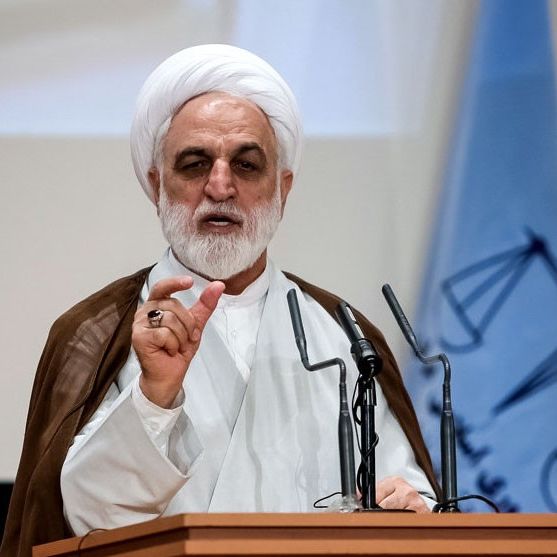
Iran's Chief Justice claims the case of those who were 'deceived' to take part in recent anti-government protests has been closed.
Alleging that scores of Iranians only took part in protests due to foreign influence, undermining the strength of the Woman, Life, Freedom movement which has seen hundreds of thousands of Iranians calling for the end of the brutal dictatorship, Gholamhossein Mohseni Ejei said: “Due to last year's riots, which were planned by the enemies [the US, Israel and Western allies], the number of cases received by the Judiciary increased by more than 4 percent."
He said judges handled more than 20,000 "riot cases", a term the regime uses to describe the nationwide anti-government protests. It is unknown if those released had been forced to confess to foreign influence, a tool commonly used by the regime to negotiate with prisoners and quash dissent.
After a wave of nationwide anti-government protests last year which has still yet to subside, the Iranian regime has embarked on a wave of executions which has seen dozens of prisoners hanged this year.
The regime used overwhelming force with military weapons in its crackdown on the protests, killing more than 500 civilians. Hundreds of other protestors suffered permanent injuries, including the loss of eyes when shotgun pellets were fired at the faces of demonstrators. More than 20,000 people were arrested.
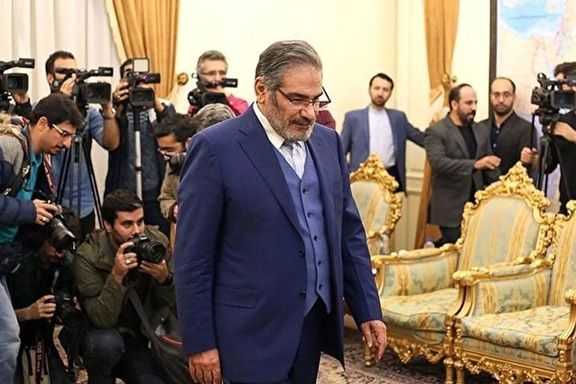
Iran’s former security chief had warned Supreme Leader Ali Khamenei of a UN fact-finding mission on human rights violations in 2022, a leaked document reveals.
According to a confidential letter leaked by the hacktivist group ‘Uprising till Overthrow' on Sunday, Ali Shamkhani wrote that investigations over human rights violations during the crackdown on protests since September 2022 could even lead to revelations about other older incidents in Iran, such as the mass executions in the 1980s.
In the letter, Shamkhani said that such a mission had only been formed for countries struggling with crises and civil unrest such as Syria, Libya and Sudan, noting that the creation of this mission has a connotation that Iran is also struggling with serious problems.
Despite Shamkhani’s list of suggestions to prevent the initiative at the UN, the fact-finding mission was finally launched.
In its resolution S35/1, "on the deteriorating situation of human rights in the Islamic Republic of Iran, especially with respect to women and children," adopted in November 2022, the Human Rights Council decided to establish an independent international fact-finding mission.
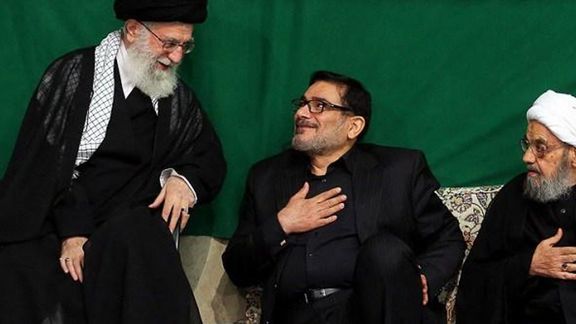
The mandate of the mission was to thoroughly and independently investigate human rights violations in Iran related to the protests that began in September 2022, after a 22-year-old woman was killed in police custody. The mission was also mandated to engage with all relevant stakeholders, including the Office of the United Nations High Commissioner for Human Rights, and the Special Rapporteur on the situation of human rights in Iran, as well as relevant United Nations entities.
Shamkhani, in his letter, suggested that Iran should invite Special Rapporteur on the Rights to Freedom of Peaceful Assembly and of Association, Clément Nyaletsossi.
Shamkhani said that a visit by the rapporteur may lead to negative reports but also positive ones as the regime could argue that “thousands” of rallies were held without any clashes.
The leaked documents do not provide an insight on what the response was from Khamenei's office.
In recent months there were rumors about Shamkhani stepping aside as hardliners blamed him for failure to suppress the protests. In video-taped remarks released on the internet in November, former lawmaker Hamid Rasaei, a hardliner cleric, accused him of failing to quash protests.
The conjecture was further confirmed after the hacktivist group hacked into 120 servers at the presidential office, getting access to internal communications, minutes of meetings, President Ebrahims Raisi’s online conference platforms and about 1,300 computers inside the office.
Among the released documents, there is correspondence between the president’s office and the office of Shamkhani, confirming rumors that he stepped down over conflicts with the Raisi administration.
In one letter addressed to Shamkhani, the president's chief of staff, Gholam-Hossein Esmaili, criticized the security chief for a lack of insight into the protests. With a condescending tone, Esmaili rebuked Shamkhani’s office for “merely describing and analyzing the events,” asking him to provide “meta-analyses and predictions” about the developments regarding the protests.
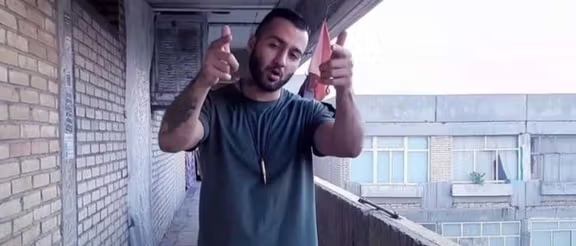
Iranian lawyers and activists have expressed concern over the secret trial of Toomaj Salehi, a rapper opposed to the Islamic Republic.
Lawyer Pegah Banihashemi, told Iran International on Sunday that "Salehi has been detained for more than 230 days, and a few days ago, his trial was held behind closed doors. Considering that there are reports about his beating, the US government has announced that it will monitor his case."
On June 22, representatives of the German, Austrian, New Zealand, and Italian parliaments, who have become Salehi's political sponsors, announced that the court proceedings concerning the singer's charges were held 230 days after his arrest without media coverage or official notification.
Milad Rasaimanesh, a political activist, also said “the more famous people inform about the case of Toomaj Salehi, the better the situation will be for him.”
Three parliament members of Germany, Italy and Austria also demanded access to his file.
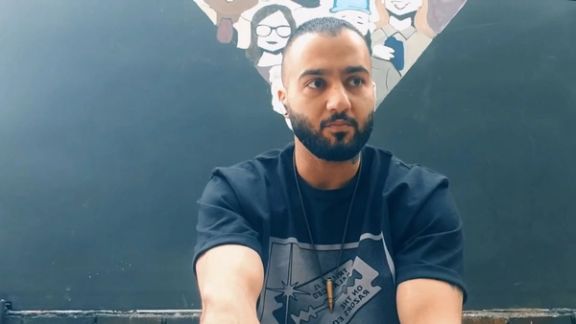
"We are very concerned. There is no transparency at all. We don't know anything: Not how the court date went. Not when the next court date will be. Not when the verdict will be announced," Ye-One Rhie, a member of Germany's parliament, stated on Twitter.
"We demand direct access to Toomaj himself. We demand access to all court files," she underlined.
Inside Iran, public protests against the imprisonment of the dissident singer continue with people chanting slogans or putting up posters of Salehi in various cities.
Earlier, Shirin Ebadi, a lawyer and winner of the Nobel Peace Prize, wrote about the judicial process of Toomaj, saying that he was denied the right to have a lawyer of his choice.
The Iranian diaspora also organized several rallies across Europe and America in recent months to support Salehi and other political prisoners.
Salehi, 33, is an artist mostly known for his protest songs about Iran's social issues and injustice by the government. Salehi was arrested on October 30th as part of the crackdown on opponents.
His arrest came shortly after his interview with the Canadian Broadcasting Corporation, saying that “You are dealing with a mafia that is ready to kill the entire nation... in order to keep its power, money and weapons.”
In his politically charged songs such as “Buy a Rat Hole” (2021), Toomaj, a 32-year-old metalworker in Esfahan, spoke out against repression, injustice, poverty, and authorities’ own corruption and impunity from prosecution.
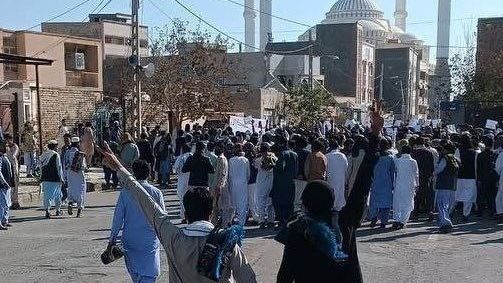
The identities of at least 14 Baluch citizens arrested by the Iranian security forces, including four children, have been revealed.
The arrests happened after anti-regime protests in the Sistan and Baluchestan province on June 23, including four young teens, Amir Alizahi, 13, Adnan Alizahi, 14, Iraj Hashemzahi 14, and Esfandiar Hashemzahi, 15.
Amir and Adnan Alizahi, cousins, were reportedly released on Friday evening after 10 hours of detention and torture by the security forces in the province which has become the heartland of anti-regime activity.
Haalvsh website, which covers the events in Sistan-Baluchestan province, reported that in the city of Rask alone, plainclothes agents forced four citizens, including two teenagers, into a car and abducted them.
"At least 50 people from a village, who had attended the Friday prayer, were arrested by the repressive forces on Friday," Haalvsh wrote of the unrest in Rask.
So far, no information has been published about the exact number of those arrested in different cities of the flashpoint province on Friday.
This Friday was the 38th consecutive week that people of the province held demonstrations against the government following the death in custody of Mahsa Amini in September, but the rallies were significantly larger following calls for protests by Sunni clerics and activist groups as the regime seems to have intensified its campaign against their religious leader Mowlavi Abdolhamid.
The prominent religious leader has been relentless in his condemnation of authorities in his weekly Friday sermons since September when nationwide protests erupted in the country.
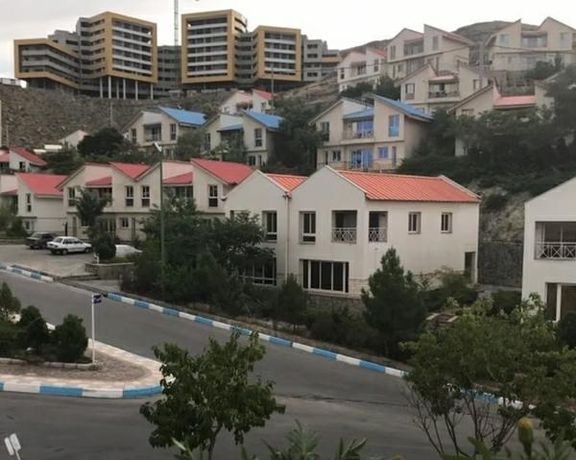
A young man has died in mysterious circumstances after allegedly falling from the sixth floor of a balcony after a police raid caught men and women reveling in the religious city of Mashhad.
It is unknown whether the young man fell or was pushed, as has long been documented as a tactic used by regime forces to eliminate opponents across Iran.
Police conducted the Thursday night raid under the auspices of inspecting for women flouting hijab rules after receiving calls from neighbors.
"A young man who was trying to escape fell from the sixth floor and lost his life,” a statement made to Iranian daily Qods claimed. “This party was a mixed-gender one with alcoholic beverages served and the case is still under investigation". Mashhad's judicial and law enforcement authorities have not yet commented on the issue.
Iran's strict Islamic laws prohibit the mixing of genders in parties and public gatherings. It is only allowed in families for men and women to hold parties in the same room. Wedding parties or other large gatherings should have separate spaces for men and women.
However, the restriction is often ignored, with some bribing local police to look the other way. In the last two years, there have been many surprise raids, particularly when young people held parties with alcohol.